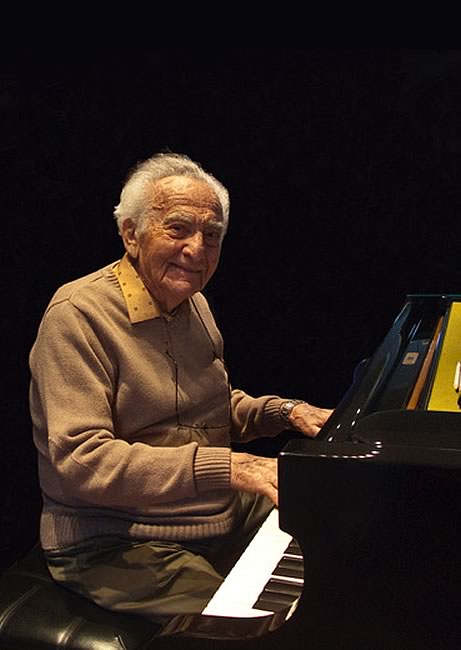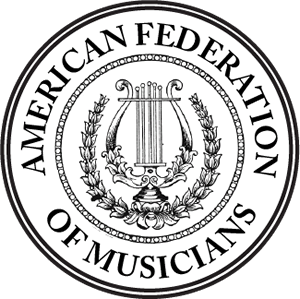Leo Spellman
1913 – 2012
On Sept. 3, Leo Spellman sat in a sold-out audience at Toronto’s Harbourfront Centre listening to his composition Rhapsody 1939-1945, playing the melody on his knees. He was nine months short of his 100th birthday, and he had been waiting for this moment for more than 60 years. The hands that tapped out the music in the air had been playing piano every day for more than nine decades, except during the Second World War, when Spellman and his wife hid in the forests of Poland under constant fear of capture, and again just after the war – when he took a bullet in the arm. That evening in September, as Spellman sat surrounded by children and grandchildren, was the culmination of an extraordinary journey that began in a German camp for displaced persons and ended, via the help of a famous Canadian musician and Spellman’s own famous cousin, on the shores of Lake Ontario. Leo Spellman died of heart failure on Nov. 24, but two months before he received some of the recognition that, on his darkest days, he felt had been denied him in his beloved adopted country. “He was a Canadian who should be more celebrated,” said Paul Hoffert, the award-winning Canadian musician and composer who helped Mr. Spellman record Rhapsody, and who conducted it that night at Harbourfront. In many ways, Spellman’s story mirrors that of his cousin, musician and composer Wladyslaw Szpilman, whose life was turned into the Oscar-winning film The Pianist by Roman Polanski. Both were talented men who lost close family in the Holocaust, and survived in unimaginably difficult circumstances by hiding under the noses of the Nazis. Both coped with their experiences by writing works that lay hidden, too painful to recall, and were rediscovered long after the war: Spellman’s Rhapsody 1939-1945 sat unplayed in a suitcase in his Toronto garage for decades, and Szpilman’s memoir was re-released to great acclaim in 1998. At the beginning of the war, Leo tried to convince Wladyslaw to escape Poland with him; six decades later, Szpilman would be instrumental in bringing his cousin’s Rhapsody to light. Playing piano provided the most enduring thread through Spellman’s life, from a childhood in Ostrowiec, Poland, through decades as the leader of a popular Toronto dance band. “He had the most extraordinary musical spirit,” said his daughter, Helene Shifman. “He played every day.” Born into a family of celebrated musicians on April 18, 1913, Leo Spellman was taught by his father, Reuven, and was playing proficiently by the age of four. In an interview with Moses Znaimer this year, he described himself as a “wild child. … I was the first Jewish boy who had a bicycle in Ostrowiec.” By age nine, he was playing piano in a silent-picture house after school, though the arrival of talkies doomed that career. He transferred his talents to a travelling band. Shortly after the war broke out, Spellman married his childhood love, Mary (known as Mania). They would remain together until her death in 2006. He considered trying to flee Ostrowiec, and urged Wladyslaw, a pianist on Polish Radio in Warsaw, to come with him. “I said to my cousin Wladek, ‘Let’s run away. Don’t you see what’s going on?’ ” he recalls in The Lost Rhapsody of Leo Spellman, a documentary about him being made by Paul Hoffert’s son, David. “But he was afraid. He said, ‘What am I going to do? Where will I go?’” Spellman, who was doing surreptitious work for the Polish partisans, ended up organizing an orchestra in the Ostrowiec ghetto, and taught accordion to one of the German guards. When the guard heard Jews were being rounded up, he got word to Leo and Mania, helping them to escape. They fled to the forest, where they lived for months. Several members of their families, including some of Spellman’s seven siblings, were sent to camps and killed. Into their lives came an unlikely ally, Henryk Wronski, a 21-year-old Polish student with an apartment in Ostrowiec where he sheltered the couple for 18 torturous months. “We were freezing, dying for food,” Spellman says in an interview for the documentary. “We couldn’t speak in case the neighbours would hear.” Toward the end of the war, as the Soviet army advanced, fleeing German soldiers broke the lock on the apartment door and took refuge. For days, Leo and Mania hid in a closet with the soldiers only feet away. Hunger forced Leo to take a wild risk, and he crept out of the closet one night to steal some of the soldiers’ bread. In the morning, they began to fight, accusing each other of the theft. Eventually they left, and Leo and Mania were free. Having survived the war, Leo and Mania faced one final, horrible chapter: As they took shelter in a house with Spellman’s sister Chana, whom he called “a second mother,” thieves broke in and began shooting. One of Chana’s children was murdered, and Spellman was shot. It would take him many months of strenuous practice before he could play the piano properly again. At Furstenfeldbruck, a camp for displaced persons in Germany, Spellman began composing his Rhapsody in 1947. It comprised three sections: The first, a loud and martial passage meant to recall the brutal noise of war; the second, a quieter, piano-heavy passage conveying suffering; and the third, an upbeat, joyful movement. “We are liberated,” Spellman explained, “and we start to sing Jewish life songs.” “I always dreamed that I have to survive the Nazis, Hitler, to tell the world what happened,” he told David Hoffert. “I always say to myself, ‘How did I survive this? I have no answer.’” Listening to the piece was painful for Spellman, and when he and Mania and their young son Les immigrated to Canada in 1948, he put it away in his garage and moved on. (Along with a new life, the couple was given a new name, and their family surname Szpilman was anglicized for a Canadian palate.) Leo was reunited with his sister Chana, who had also moved to Toronto and remarried. Daughter Helene arrived in 1950. After a brief stint as a dishwasher, Leo found his way back to a piano, founding the popular Leo Spellman Orchestra, which played more than 1,000 weddings and parties over the decades. He also had a successful sideline in property development. Music and family were the constants in his life. He was charming and strong-willed but sometimes bossy, making the party guests when Helene turned 60 sing Happy Birthday a second time because they had been off-key. In the 1990s, Wronski, the student who had sheltered the Spellmans, tracked them down and they had an emotional reunion in Toronto. But Spellman never opened the suitcase in his garage. Then, in the late 1990s, the Holocaust Museum in Washington approached Szpilman about providing some music for Life Reborn, a conference for survivors and their families. “I’ve never written Jewish music,” he told them. “But my cousin Leo in Toronto did. You should try him.” In his garage, he found the work he had written half a century earlier, dusted it off and took it to Washington, where it had its North American premiere at the conference in January, 2000. “The reception was amazing,” says Shifman, “and it meant so much to my father.” Over the next few years, Rhapsody 1939-1945 was performed in the United States to equally enthusiastic receptions, but never in Canada. The fact that his composition had received no attention in his own country rankled Spellman somewhat, but he didn’t dwell on it: An active man – he drove until he was 97 and lived on his own for two years after that – he had family and music to keep him busy. (He also spoke on the phone to Chana, now 105, several times a day.) Still, his family – two children and seven grandchildren – nagged him to record Rhapsody, and to have it performed in Canada. Spellman finally caved and three years ago reached out to Hoffert, the award-winning composer and co-founder of the band Lighthouse, to see if his Holocaust composition might be captured for posterity. “He made me audition,” Hoffert says with a laugh. “He wanted to make sure he had the right guy. I understood that. I have high standards, too – you should if you’re an artist and composer.” Hoffert realized, when he sat down to listen to Spellman play, what an incredible story the music was telling, and he was surprised it wasn’t better known. “I thought how awful it was that here was this person who was a great artist, and nobody knew that he’d written major pieces of music in the 20th century.” He gathered musicians and, following the precise and rigorous instructions of its composer, began to record. (Spellman didn’t play on the CD, but was more than happy to provide directions from the sidelines.) Along with the record, Paul Hoffert and his wife, Brenda, began to make the documentary about Spellman’s life, although speaking about the war was difficult. At one point, he wipes tears from his face with a handkerchief: “When I listen to the Rhapsody, I’m crying, because it reminds me of how I made this. I remember those years.” Spellman’s health began to fail only in recent months. In September, he was well enough to attend the Canadian premiere of his composition, held as part of the Ashkenaz Festival in Toronto. After the concert, people lined up to buy the CD. “My father’s Rhapsody captured the enormity of this tragedy, and his own personal sense of sorrow and loss,” Shifman says. “It became his healing.”






